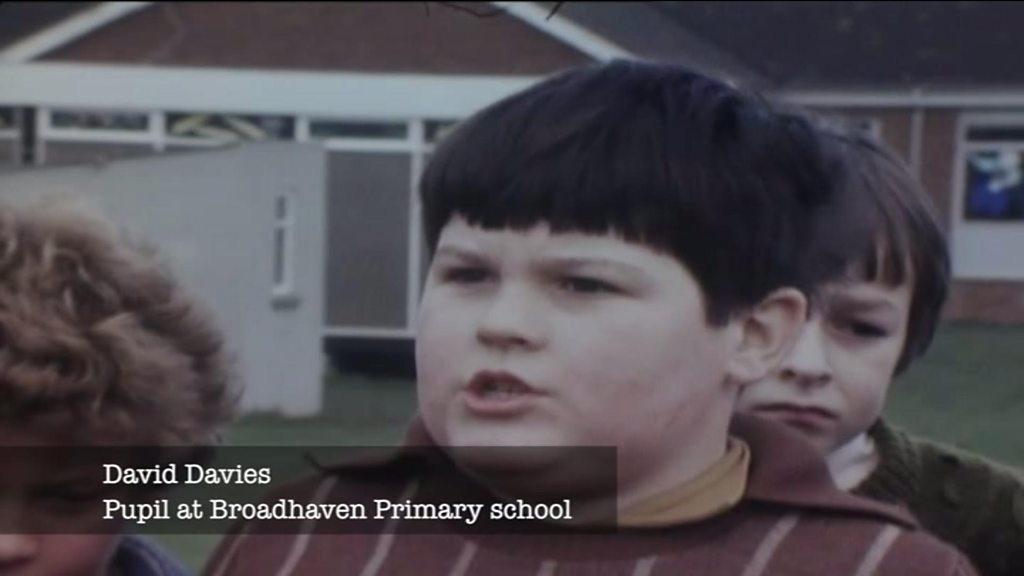The great saucer invasion: The day six 'spaceships' landed in England
- Published
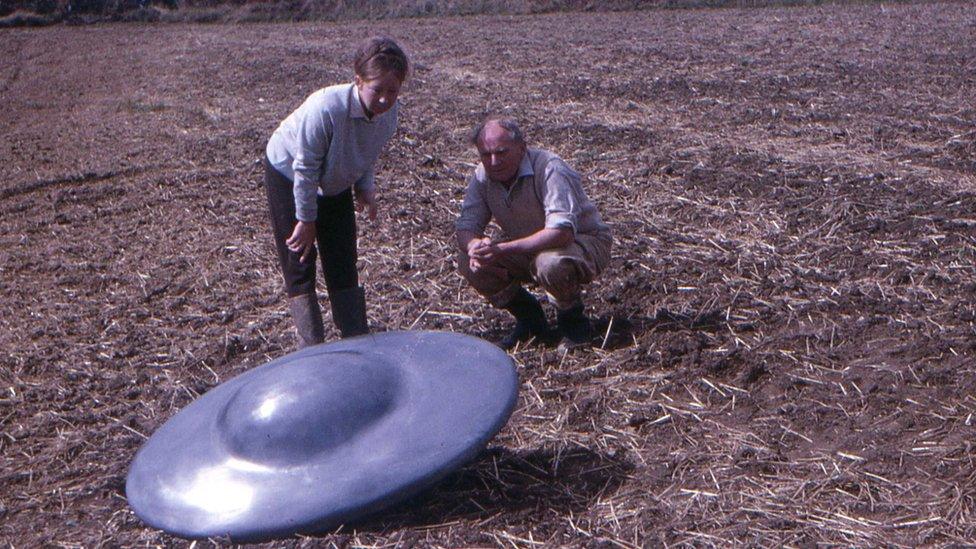
The saucers were found to be giving out a low, ominous tone
They had big metal domes, emitted a strange, ominous hum and appeared one morning in a straight line across southern England. For a few hours, members of the public, police and the Army really believed alien spaceships had landed - until it was revealed to be a stunt by students. But how was the hoax so successful?
The apparently extra-terrestrial vessels prompted a major police and military response, witnessed by Ray Seager who was with other children playing outside when one of the six saucers was found in the Isle of Sheppey on 4 September 1967.
"We all came running over, and there it was," he said. "There were no two ways about it. It was there.
"It was the old flying saucer shape. It was a silver, big dome with the thing round the outside. Yes, it was a flying saucer."
While the children were excited, he recalls there was also real fear as the police arrived.
"They started coming up the hill, and as they started getting close, they started gesturing to us, all the kids, to move away. And they were frightened I think, just as much as we were."
Newspapers reported how the saucers were watched, listened to and weighed at police stations and one RAF base throughout the day.
The Sheppey saucer was removed by RAF helicopter, while satellite experts were called to a "landing" site in Berkshire amid reports the object found there was bleeping and hissing and full of a mysterious liquid.
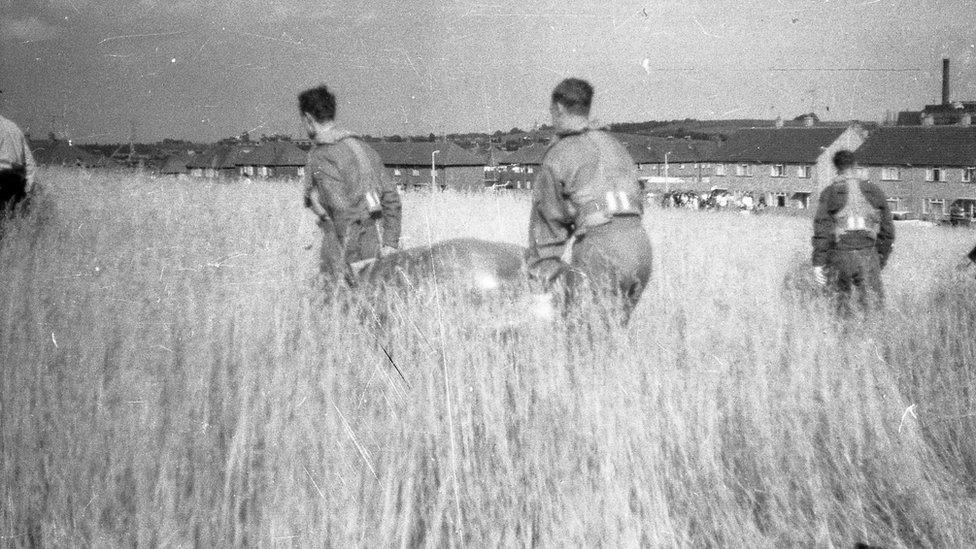
The saucers were taken away and examined before it emerged that hoaxers were responsible
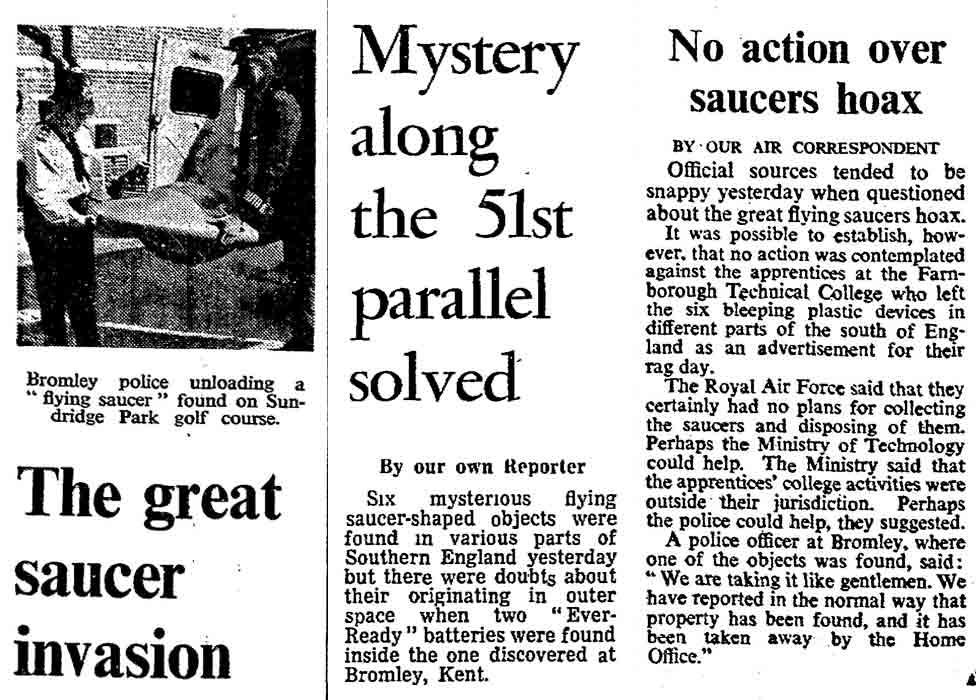
Doubts about objects arose after batteries were found in one of them
From the moment apprentices at Farnborough's Royal Aircraft Establishment (RAE) came up with the idea for the hoax, there was a determination it should be convincing, said engineer Chris Southall.
All of them were interested in sci-fi, and they set out to create a design that would not be recognisably human.
There could be no giveaway features on the saucers, such as portholes or aerials, nor anything that might be seen on terrestrial inventions such as a plane or a boat.
First they made the metal-coated, fibreglass saucers by forming plaster moulds to build them in two halves, and then they sandwiched them together with electronic sound equipment inside.
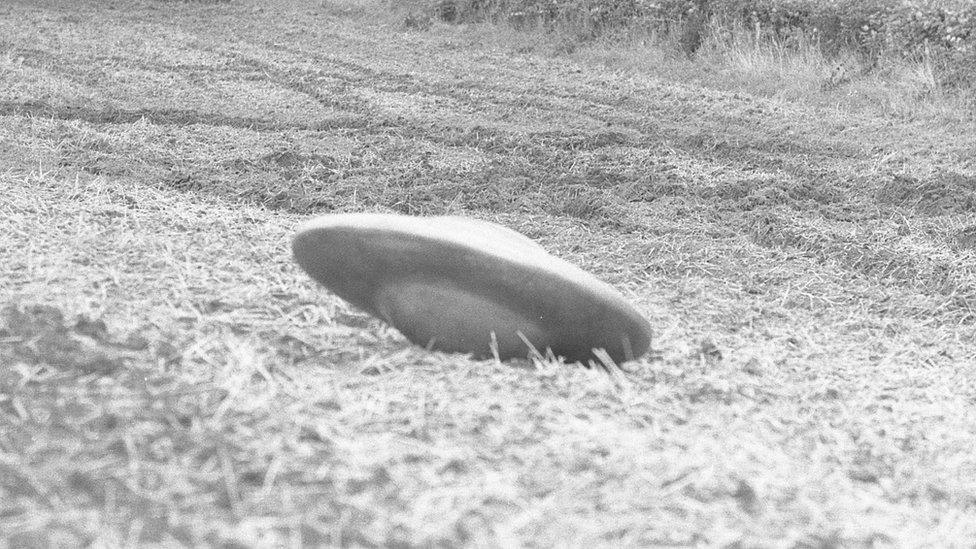
The objects were filled with a flour and water sourdough-like substance, which fermented and then exploded when the saucers were drilled into
"When you turned the saucers upside down, it flicked a switch and started a battery," Mr Southall said.
"We were putting them out in secret, in the middle of the night, in the early hours, and we didn't want them to make a noise until then. Only when we left, we turned them upside down and the noise started - and then we got away quick."
The saucers were also filled with a flour and water mix that fermented inside and turned into foul-smelling slime.
"We wanted to make something that looked really alien," he said.
They were placed in six locations in a straight line from east to west - Queenborough on the Isle of Sheppey, Bromley in south London, Ascot, the village of Welford, near Newbury, in Berkshire, Chippenham in Wiltshire and Clevedon in Somerset.
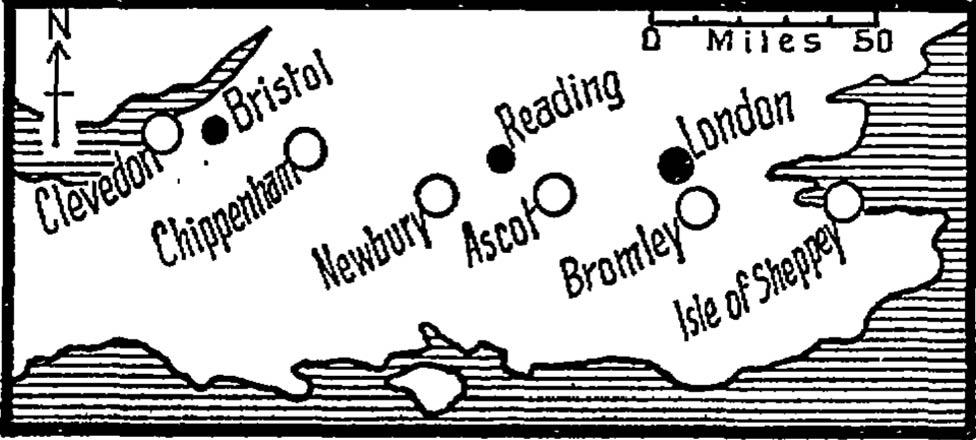
Newspapers showed how the saucers "landed" in a straight line
Engineer Rog Palmer, who was also on the committee, organised teams of two or three apprentices to take the saucers to each location and briefed each group about how to carry out the task, including what to say if stopped by the police - that they had stayed out late at a party.
And by the time the saucers were discovered, the pranksters were back in their hostel - where 500 apprentices lived - bleary-eyed over breakfast after being up all night, but very excited.
They had risen to the task of planting the "spaceships" without detection, but were they prepared for the extraordinary success of their hoax?
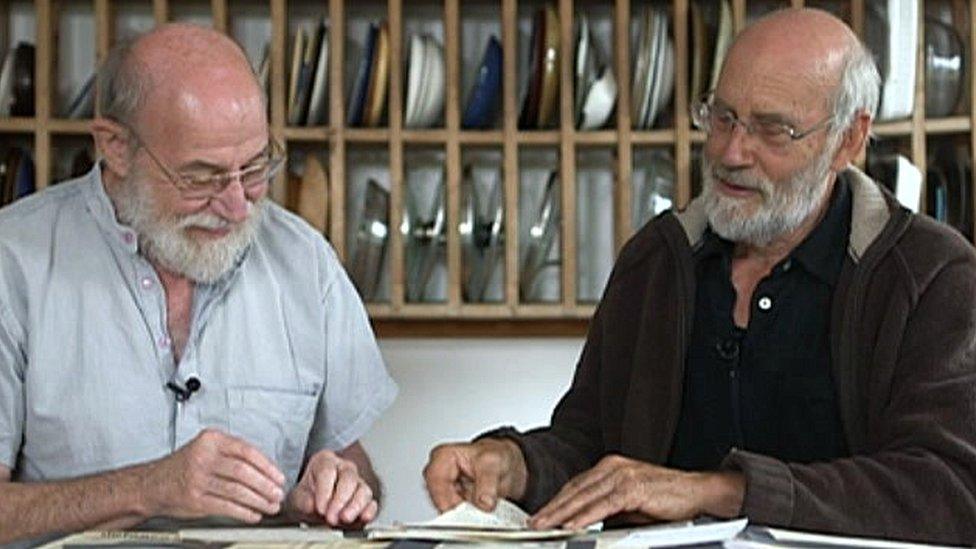
Engineers Rog Palmer (left) and Chris Southall masterminded the hoax
Mr Southall, now 72 and an environmental campaigner who runs an eco-house, external in Clacton, Essex, remembers it was the era of Sputnik, external and space exploration, external - and says the whole point of the hoax was for it to be taken seriously.
"We thought the government should have some sort of plan if aliens did land," he said.
"So we gave them a chance to try out whatever plan they had - but they didn't have one."
He recalls the surprise of the apprentices when police and Army responders blew one saucer up and dropped another.
David Clarke, media law expert at Sheffield Hallam University and a consultant and curator for the National Archives UFO project, external, believes the response to the hoax was flawed.
"One of the saucers when they actually drilled into it, because it was full of this compacted, sort of papier-maché mess, actually exploded and showered the police officers with this stuff.
"If it had been some kind of radiation hazard, how would they have dealt with that? It would have been a disaster area.
"And what did they do? Just washed it down the drains."
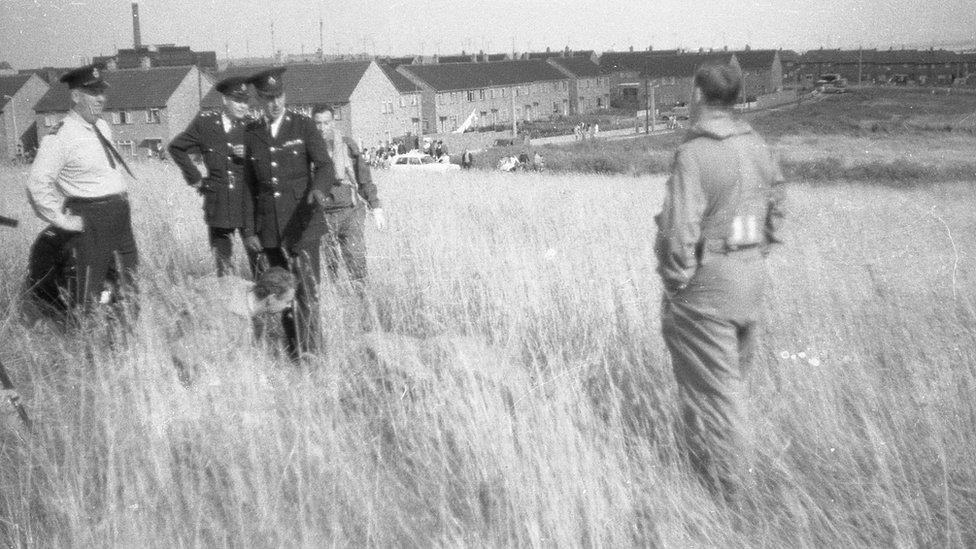
The "landings" led to a major police and Army response
Dr Clarke and Mr Southall agree that in 1967 the public imagination was already gripped by UFO fever - at the time the Ministry of Defence was receiving near-daily reports of sightings.
But despite this climate, the apprentices did not expect the huge media response, which included international coverage and double-page spreads.
"It was more than we hoped for," Mr Southall said.
The events of that day remain something of a blur for him, but he remembers trekking to a TV studio in the evening after the hoax had been exposed.
By the time the papers went to press, journalists had been told about the prank, but it didn't deter them from reporting it as an alien invasion, Mr Southall said.
It's 50 years since the great UFO hoax fooled the nation
Press cuttings from the time reveal official sources "tended to be snappy" when questioned about the hoax.
But police confirmed no action was to be taken against the pranksters, with one Bromley officer quoted as saying: "We are taking it like gentlemen."
Mr Southall admits that to put the police and Army to such an inconvenience today would have entirely different consequences.
"Those were hippie days," he said. "We were apprentices from the RAE and people had a kinder attitude to us because of who we were, and in those days it was different."
Now, he says, the saucers would be treated as explosive devices and detonated - and the hoaxers could end up in jail.
"That's one of the interesting things looking back at this, 50 years on.
"The times we live in now are much harsher, and I don't think we could do it now. We would end up in trouble."
See more on this story on Inside Out, on BBC One South East and South on Monday 4 September at 19:30 BST, and later on the BBC iPlayer.
- Published14 March 2017
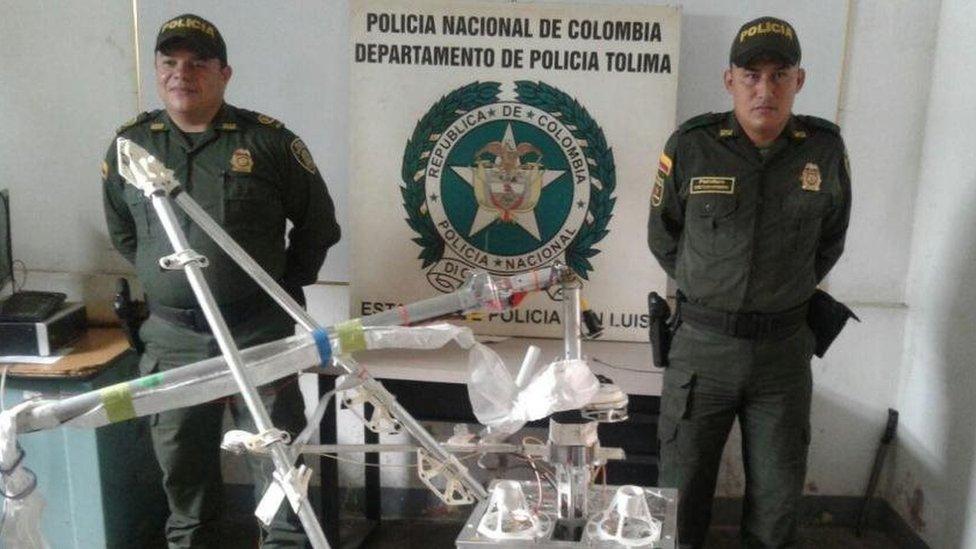
- Published13 March 2017
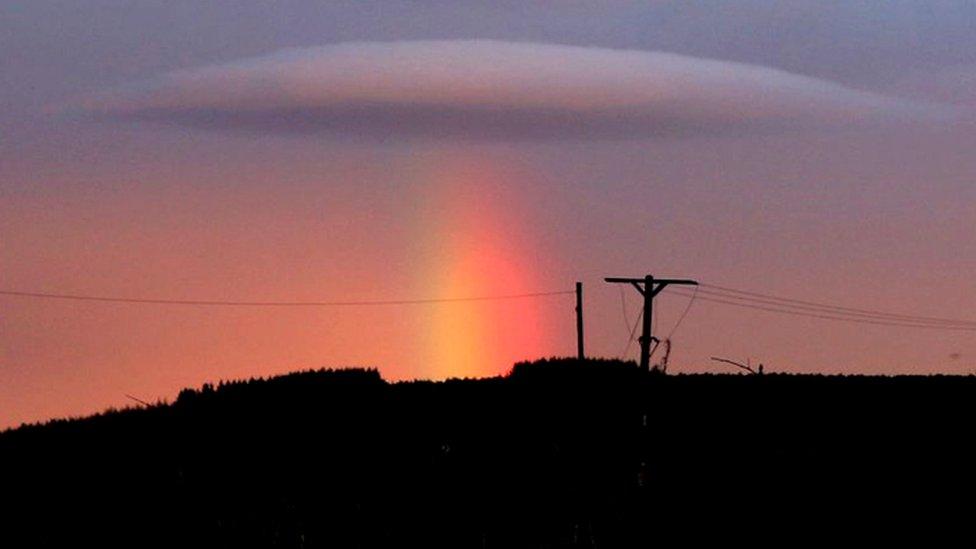
- Published3 February 2017
